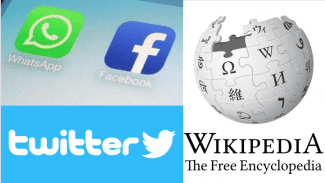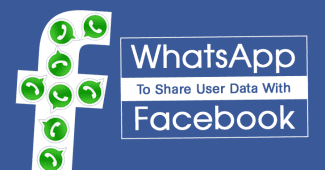We've all clicked so fast on social app "Licenses and Agreements" Do we ever read them? Just hurry up and get me signed in is what I'm usually thinking. Well there are forces out there that are either starting to read between the lines or are not wanting people to read between the lines.
BRITAIN & TWITTER
Twitter has decided to lock out the British government from accessing key information streams. With the backing and the support of the government, the British police and intelligence agencies are wanting to access certain Twitter accounts to help identify terrorist plots. Twitter blocked access to key streams of information on April 25 that have been used by police and M15 to identify potential threats.
“We are protesting this decision. We are in talks with Twitter on getting access to this data,” The Telegraph quoted a spokesman for British Prime Minister Theresa May, as saying. The spokesman also called for other social media companies to be a part of government’s fight against terrorism. According to reports, the government had paid a third-party company for a service that tracked terms related to potential terror attacks – before this was blocked by Twitter cutting off access to its API. – tech.firstpost.com
Twitter has not assisted on both sides of the pond. It blocked US law enforcement agencies from accessing data before.
TURKEY & WIKIPEDIA, TWITTER, FACEBOOK
Turkish president Recep Tayyip Erdoğan's has decided to take his purge of dissenting voices that have been critical of his government to online.
Turkey blocked access today to Wikipedia on April 29, citing a vaguely worded law that allows authorities to block a website deemed obscene or a threat to national security. Wikipedia, the open access site, was down in all languages using a Turkish IP address as of 8am, according to the monitoring group Turkey Blocks.
This comes on the back of Turkish authorities asking of Twitter to block Mahir Zeynalov, a journalist and leading critical voice against Erdogan's autocratic rule—and it is not the first time.
The journalist gained popularity on Twitter for firing off poignant tweet storms that included the names and personal details of other journalists and academic colleagues who were imprisoned days after the coup in July 2016. Nearly 50,000 people from various professions including civil servants, police officers, judges, teachers have been arrested in the ongoing purge.
"Only this week, at least 55 people were put in prison over their posts on Twitter and Facebook. An Italian journalist was detained and then deported. More than 150 journalists are still behind bars, and Turkey's critical journalists are looking for ways to flee the country," Zeynalov told Motherboard.
The government under Erdogan's iron grip has strengthened with more removal requests on Twitter lodged than any other country, at over 3,000 from July to December 2016, followed by France. With thousands of judges fired or imprisoned after the coup attempt, court requests have also exponentially increased to 844 requests targeting verified journalists and the content they disseminate. – motherboard.vice.com
INDIA & FACEBOOK, WHATsAPP
NEW DELHI: Pending possible scrutiny of WhatsApp's new privacy policy on the touchstone of right to privacy, Facebook, which owns the popular messaging platform, told the Supreme Court+ that those feeling aggrieved could quit WhatsApp.
Facebook counsel K K Venugopal said, "Those who find the new privacy policy irksome or violative of their fundamental rights, can quit. We've given full freedom to users to withdraw from Facebook and WhatsApp."
The bench was quick with a rejoinder that this would amount to forcing a citizen to make a negative choice. Appearing for the petitioners, Harish Salve said under the new policy, users were unwittingly made to give consent to both WhatsApp and Facebook and the latter could snoop on messages privately circulated between users of WhatsApp. "They claim that this is being done to improve services to be given in future to users. Whether the snooping is done electronically or manually, the right to privacy of users gets breached. The government is duty bound to protect the fundamental right of every citizen. If it is failing, then the SC can surely issue appropriate directions," Salve said. – timesofindia.com
When you bend one social media rule, do you put all the other rules and apps in danger?
Where should governments go when it comes to social media? Should it be a policy of hands off?
How far should social media apps go to assist governments maintain control and safety?
Should one app's policies be the same for all nations?




